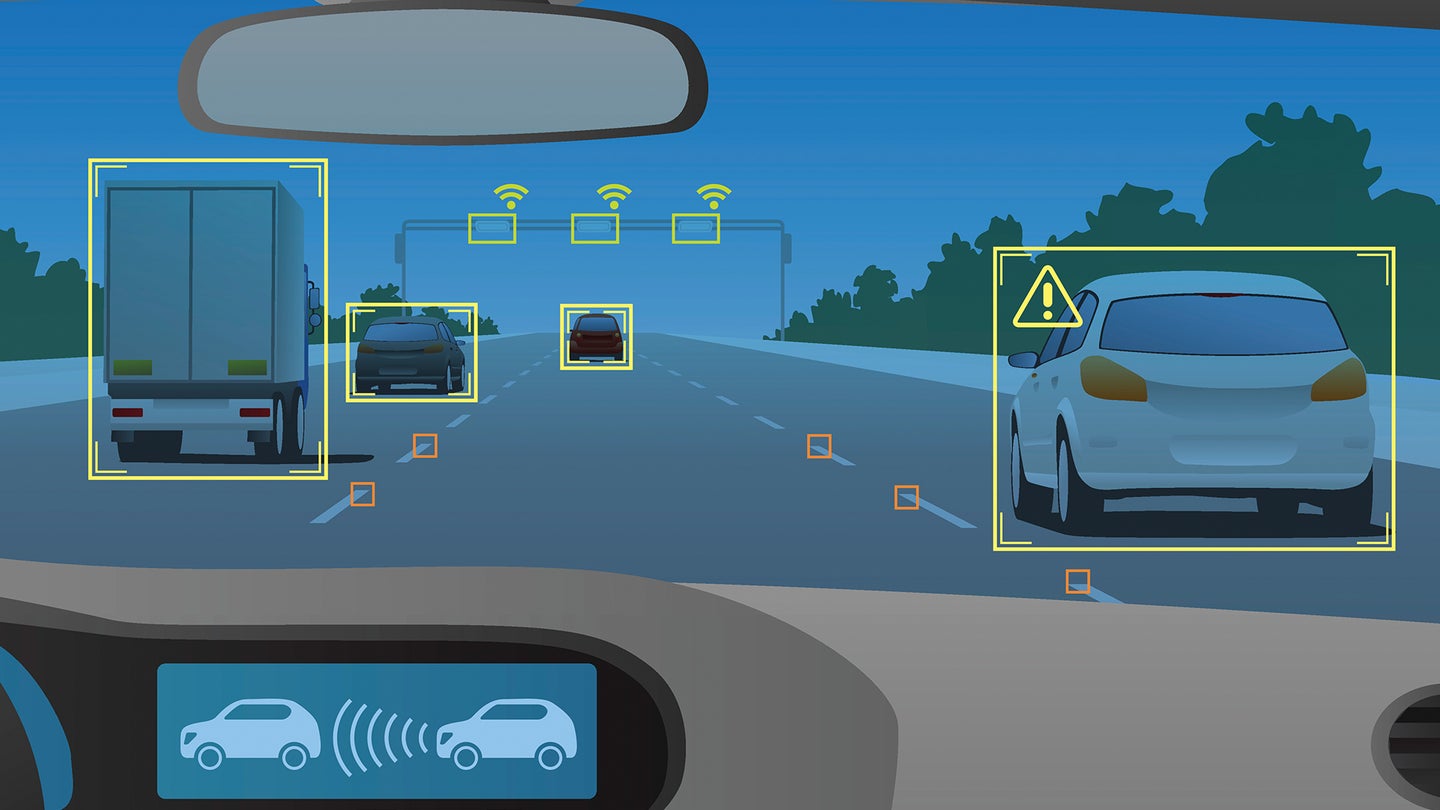Here’s How The Sensors in Autonomous Cars Work
This helpful infographic detangles the mysterious web of sensors that autonomous cars use.

In order to stay on the road, avoid collisions, and obey traffic laws, autonomous cars rely on a series of sensors that help the cars understand the environment in which they're traveling in real time. By using a combination of ultrasonic, radar, image, and Lidar sensors—each of which serves a distinct purpose—these sensors digitally map out the road ahead of an autonomous car and essentially help it "see" where it's going. And while the full-on proliferation of fully autonomous vehicles is some ways away, these sensors will still be key players in how well these cars function on the road—so let's figure out what they do.
Fortunately, the folks over at 2025AD have designed an infographic that not only shows which sensors autonomous cars use, but also how they work, what purpose they serve, and, most importantly, what aspects of these sensors need to be improved—fully autonomous vehicles are still very much in development at this point.
Check it out below.
